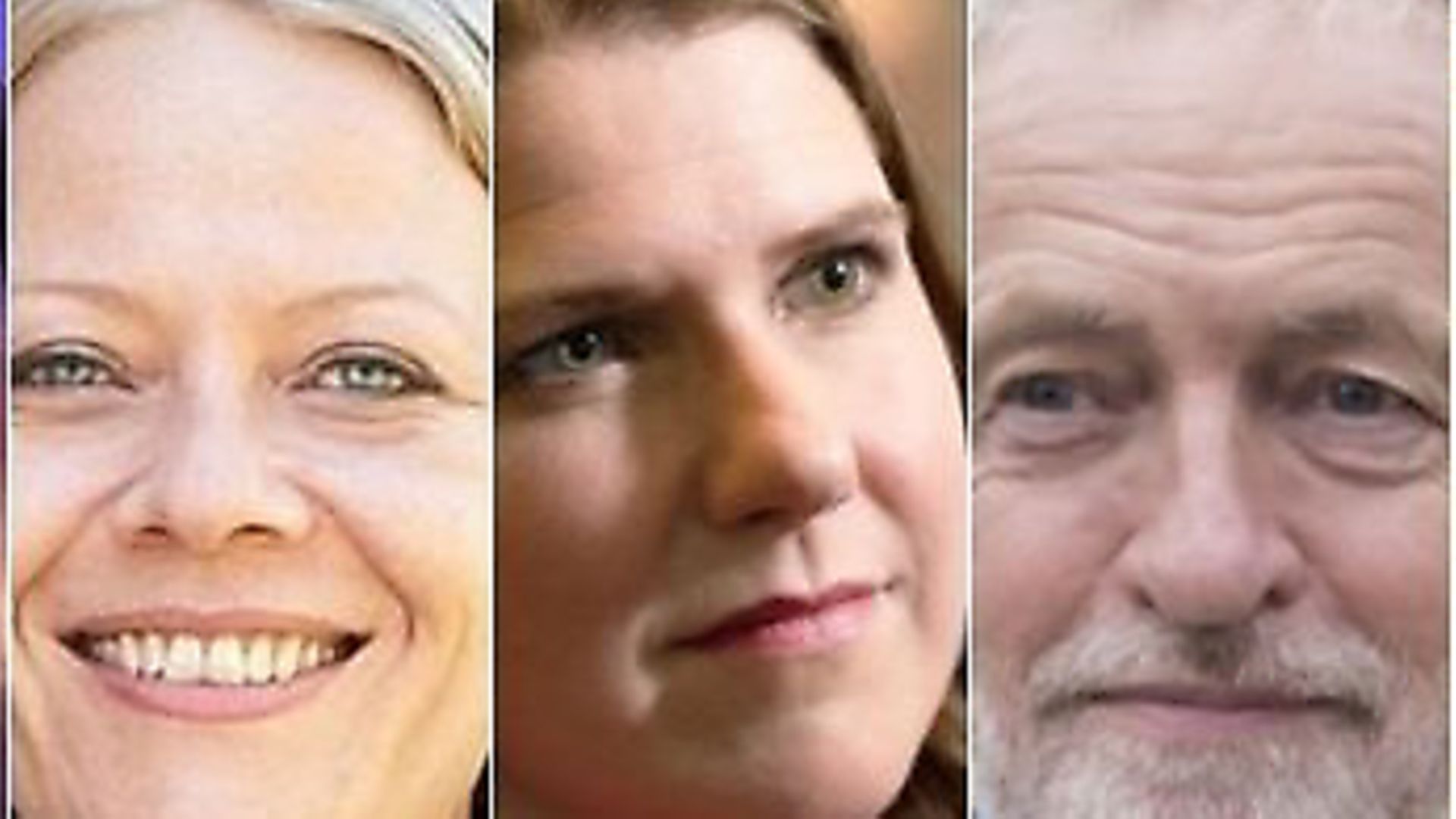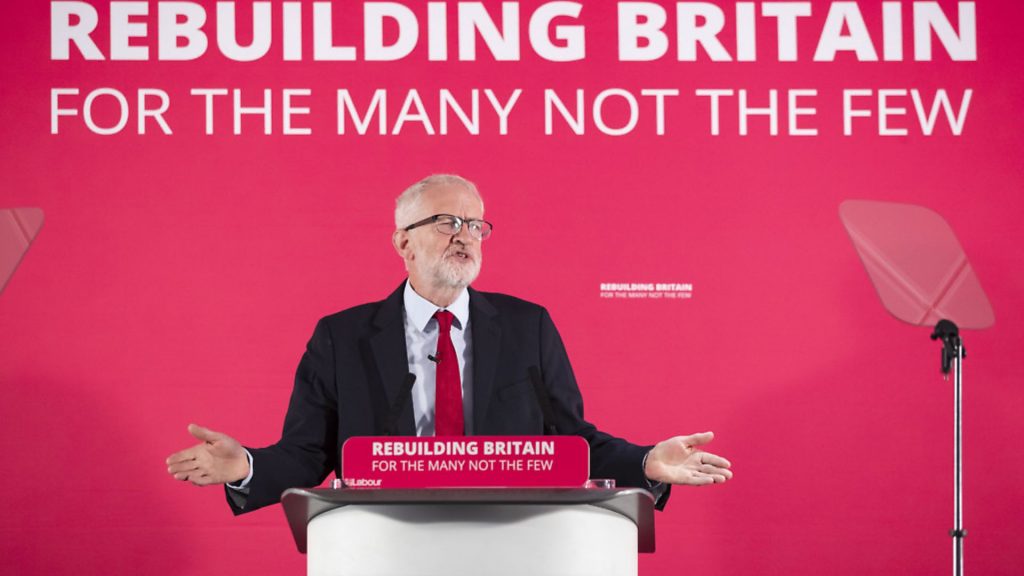
The fourth national poll in less than five years is peaking over the horizon, with Boris Johnson poised to call for a general election if he is defeated in the parliamentary showdown over Brexit.
Will his “do or die” commitment to leaving the EU by the Halloween deadline and lavish policy pledges be enough to tip the balance of the House of Commons in his favour? Or will Jeremy Corbyn manage to win back voters with his fight to stop a no-deal Brexit and push for drastic change?
The result is impossible to predict with even a slither of confidence – particularly in this tumultuous modern era of politics.
Here are the questions that might trouble our political leaders.

– Where would a Tory majority come from?
The PM will be banking on overturning the losses made by his predecessor, Theresa May, to give him the parliamentary power to drive through his Brexit plans.
He would hope to do this by sniping off Labour Leave seats by accusing Jeremy Corbyn of causing a “pointless delay” to Brexit, as Mr Johnson did in his Downing Street speech on Monday.
Johnson would also need to hold on to Brexit-backing seats in the South West where the Liberal Democrats pose a threat.
His first major challenge as PM was the by-election in the mid-Wales constituency of Brecon and Radnorshire, which voted 52% to Leave in the referendum.
The Lib Dems overturned the Tory majority to win the seat with a swing of nearly 12% last month.
– Can the PM charm lifelong Labour voters in its northern heartlands?
Johnson is an Old Etonian whose path to premiership was paved with study at Oxford University and the editorship at the Spectator magazine.
He is not the typical candidate to win the support of traditional Labour voters.
But they may see him as being closely aligned with their views on Brexit, with many Labour seats in the north having supported Leave.
Corbyn, on the other hand, backs blocking no-deal and wants a second referendum on any agreement hammered out with the EU.
And there are two major precedents for Johnson’s reputation as a “Heineken” Conservative who can reach parts of the electorate other Tories cannot. He was twice successful in becoming mayor in Labour-leaning London, in 2008 and 2012.
However, much has changed since those elections.
– A clear-cut Brexit threat
Some pundits believe the main battleground may not fall on traditional turf, and may in fact be between the Tories and Nigel Farage’s insurgent Brexit Party.
While Johnson has always said he would enact no-deal if a fresh agreement is not won, the former UKIP boss presents a more clear-cut argument.
Farage argues no-deal is the only legitimate Brexit.
Johnson has faced questions as to whether he would form some sort of pact with the Brexit Party in order to ward of its threat and win a poll.
But, so far, Farage appears to not want to form an alliance while Johnson remains publicly in favour of a deal with the EU.
– A slump in Scottish support?
Ruth Davidson was seen as a modern Tory capable of winning support from across party lines until she announced her resignation as Scottish Conservative leader, citing her “conflict” over Brexit.
The SNP already holds a large majority of seats north of the border, but her departure has raised fears that the Tories could shed votes in the 13 constituencies it currently commands.
– What does the polling say?
It is crucial to point out the polling does not attempt to tell us what will happen on any election day, but rather should be treated as a snapshot of opinion at a very specific period.
But they can be useful to give us an insight into what voters are currently thinking.
Right now, Corbyn should be deeply troubled, while the PM is offered little reassurance.
An average of polls puts Labour on 23%, a figure that has been relatively steady in recent months, while the Lib Dems are close behind on 19%.
The Tories have increased their share to 33% in the wake of Mr Johnson’s selection as Conservative leader, a change that mirrored a fall in support for the Brexit Party.
It is difficult to estimate seats won from share of the national vote, but Mrs May failed to secure a Commons majority despite winning 42% of the vote.
And there are fears a Remain alliance could lock out the Tories.
– The Lib Dems and a pact against Brexit
If the Lib Dems could conquer the Leave-backing Brecon seat, then its hopes must be boosted in EU-favouring areas.
The party has perhaps been most vocal and clear in its Remain support, having quickly come out in favour of a second referendum.
And they are in favour of forging a Remain alliance to combat Brexit along with Plaid Cymru, the Greens and some independents.
The non-aggression pact would see candidates tactically stand aside so they can maximise the benefits from pro-EU support.
Labour is not in favour of joining the allegiance, but all the same it could pose a threat to some Tory seats.
The Lib Dem victory in Brecon was interpreted as the first alliance success after Plaid Cymru and the Greens both stood aside.
– What’s the view from an elections expert?
Sir John Curtice, a professor of politics at the University of Strathclyde, thinks the Tories will have a battle just to maintain the minority they have, but gives them a shot of winning a majority.
He said they could lose out to the SNP, that defeats to the Lib Dems are “inevitable” and that “in order to stand still” they must make gains from Labour.
“The truth is with an eight-point lead they probably would make enough gains but whether they get an overall majority: a 50 50 shot,” he told BBC Radio 4’s Today programme.
The real battle, he believes, is the showdown between the PM and Farage over who can win the hearts of Brexit voters.
“Boris Johnson will be going into an early election saying, ‘I don’t want my hands tied by a no-deal being taken off the table, but I want a deal,”‘ Sir John said.
“Nigel Farage, on the other hand, will be saying hang on now we should just be leaving without a deal.
“That could be the crucial debate upon which any early election might well turn.”
Additional reporting by the PA news agency.









